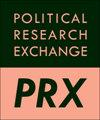Perceptions of polarization among political representatives
IF 1.8
Q2 POLITICAL SCIENCE
引用次数: 1
Abstract
ABSTRACT The aim of this article is to study why politicians in the same elected assembly perceive political polarization differently, as well as whether and how this influences perceptions of their behaviour. The findings reveals that there is a relationship between local politicians’ perceptions of polarization and winner-loser partisanship and trust. The results show that politicians who have higher levels of trust perceive a lower level of antagonistic behaviour. Being a political winner (in a ruling party coalition) or loser (in opposition) fosters a specific form of partisanship, which affects politicians’ perceptions. Politicians who are winners tend to perceive lower levels of polarization and antagonistic behaviour. More insight into how and why political actors perceive the same situation differently could potentially foster a greater understanding – a political empathy – among political combatants, facilitating interaction. The study is based on data from a survey conducted among all councillors in the 290 municipalities in Sweden.政治代表之间的两极分化
本文的目的是研究为什么同一选举议会中的政治家对政治两极分化的看法不同,以及这是否以及如何影响他们对行为的看法。研究结果显示,地方政治家对两极分化的认知与输赢党派之争和信任之间存在一定的关系。结果表明,拥有较高信任水平的政治家感知到较低水平的对抗行为。作为政治上的赢家(在执政党联盟中)或输家(在反对党中)会形成一种特定形式的党派之争,从而影响政治家的看法。作为赢家的政治家往往认为两极分化和敌对行为的程度较低。更多地了解政治行动者如何以及为什么对同样的情况有不同的看法,可能会促进政治参战者之间更好的理解——一种政治同理心,促进互动。这项研究基于一项对瑞典290个城市的所有议员进行的调查数据。
本文章由计算机程序翻译,如有差异,请以英文原文为准。
求助全文
约1分钟内获得全文
求助全文

 求助内容:
求助内容: 应助结果提醒方式:
应助结果提醒方式:


